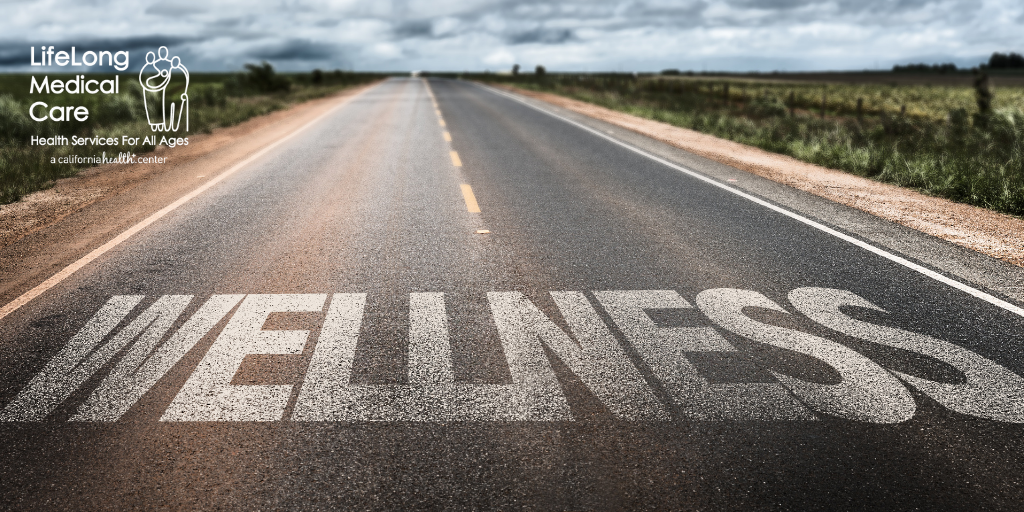LifeLong Medical Care’s Culture of Wellness
Staff Profile Contributed by Elaine Hersher, Senior Editor, LifeLong Medical Care
A culture of wellness leads to success for patients – and staff.
Many of us shared mindfulness moments during COVID’s early days nearly two years ago when meetings began with a deep breathing exercise or a short meditation. These small exercises helped calm our minds during a breathtakingly turbulent time — which we find ourselves in again as the Omicron variant rages on. At LifeLong Medical Care, Leora Myers is an invaluable resource.
The work that Leora does is a commitment to the foundation for our workforce – David B. Vliet, CEO
Leora, LifeLong’s Holistic Health Program Manager, is a nurse with a background in integrative medicine and spirituality. She’s called upon frequently to open meetings with a mindfulness moment and has often provided calm before department, program, and committee meetings. But she does so much more.
For more than a decade, Leora has provided complimentary modalities, such as mindfulness and Qi Gong — a form of Tai Chi — for staff and clients of LifeLong’s East Bay Community Recovery Project (EBCRP). She also serves as a program manager for the Ryan White mental health and substance abuse services. She has brought her practices to the Tobacco Cessation Program and she’s creating stress-reduction techniques for staff in the Respite Program so they can learn to practice on their own. Leora opens every monthly meeting of the Behavioral Health staff with a mindfulness moment. For Leora, staff wellness is a paramount concern. And helping to create a culture of wellness at LifeLong is her mission.
CEO David B. Vliet describes Leora as “a remarkable person…. She’s a living example of what these practices can do. The work that Leora does is a commitment to the foundation for our workforce, which is Health, Wellness, and Mindfulness, and will ultimately manifest itself in positive outcomes in the community,” he says.
Finding ways to be less stressed at work is good not only for us but also for our patients, Leora says. “If I worked in a plant where I’m assembling cars, it may not be that big an issue, but I’m working with people’s lives, right? They’re there with some serious, serious things going on. So how am I to become whole so that I am myself, so that I can provide that care? Because it definitely is going to carry over to how I provide care,” Leora says. Stress reduction, she says, is important for everyone, not just people who provide direct patient care. And she emphasizes that a couple minutes or sometimes even a few seconds of, say, deep breathing, is not that time consuming and can be vital in the long run. “Most people think of self-care as ‘I’ll get home and I’ll take a long walk, or I’ll take a hot bath.’ But what do you do during the day when you really need it?”
Leora grew up in St. Paul, Minnesota, and was the first African American to integrate her nursing school. In the late 1970s at the height of the counter-culture movement, Leora visited San Francisco for a weekend and fell in love with the city’s vibrancy and progressive ideas. She graduated from California Pacific Medical Center’s Institute for Health and Healing with a Nursing Specialty in Integrative Medicine & Spirituality. She has a Qi Gong instructor certification from Tai Chi Healthways in San Diego and is a certified Trainer of Medical Taiji from the U.S. Collegiate Taiji Federation. As a nurse, she says, “I was always outside the box.”
Leora opened a body work center in San Francisco. And in the 1990s she authored the book “Menopause & Beyond: A Fitness Plan for Life” and contributed to The Black Women’s Health Book along with Toni Morrison and Maya Angelou. Leora’s parents begged her to keep her nursing license in case this whole integrative medicine thing didn’t work out. But then she realized that what she was doing is nursing “Now I feel really comfortable as an RN because these ideas are expanding into nursing care,” she says. Recognizing the stress we’re all under, Leora is offering to spend time with the managers of any department to discuss what they’re doing for their employees’ wellness, what they’d like to do, and what role she can take to assist them. Workplace stresses are real, she says, but we can influence how we respond to them. “Many times, we can’t change what we’re in,” she says. “But we can change how we are in that moment.”
Learn more about LifeLong Medical Care HERE.
